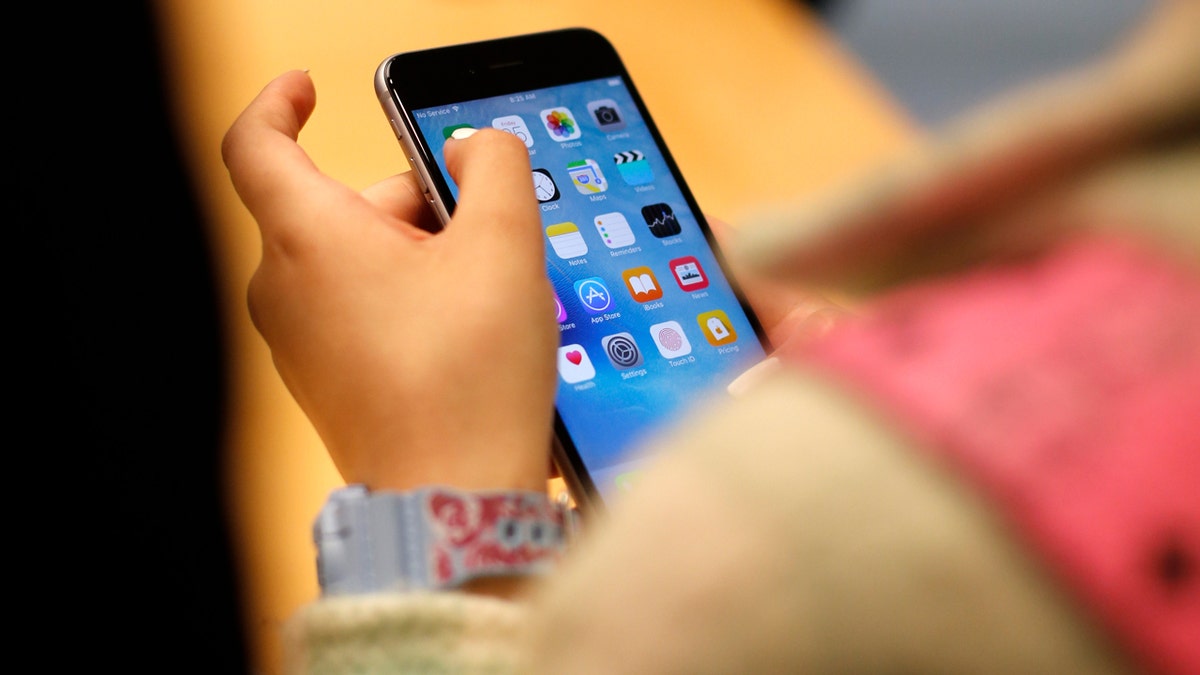Health
Gender dysphoria and eating disorders have skyrocketed since pandemic, report reveals: ‘Ripple effects’

Mental health diagnoses in children have skyrocketed since the COVID pandemic — led by gender dysphoria and eating disorders, according to a new report.
LexisNexis Risk Solutions analyzed medical claims data submitted between 2019 and 2023 for patients under age 18.
Overall, mental health claims rose 83% among young people in that time frame.
‘GENDER-AFFIRMING’ TREATMENTS DON’T BENEFIT YOUTH, SAYS PEDIATRICIANS GROUP: ‘IRREVERSIBLE CONSEQUENCES’
By comparison, gender identity-related diagnoses spiked 133% and eating disorders rose 108%.
Phobic disorders also increased by 77%, as did claims for developmental disorders.
Mental health diagnoses in children have skyrocketed since the pandemic — led by gender dysphoria and eating disorders, according to a new report. (iStock)
“Americans are in the midst of a mental health crisis, which lingered well before and was exacerbated by the COVID-19 pandemic,” the researchers wrote in the report.
“The initial trauma and continued ripple effects from the pandemic are still negatively impacting Americans’ mental health, particularly teens and young adults.”
Why the spike in gender dysphoria?
Multiple factors have led to the sharp uptick in gender dysphoria, according to Abbey Jo Schrage, a licensed psychotherapist who runs her own practice in Idaho and provides virtual mental health services.
“The first is the simple fact of awareness of gender identity issues,” she told Fox News Digital.
TRANS CHILDREN WHO TOOK PUBERTY-BLOCKING DRUGS HAD MENTAL HEALTH ISSUES, UK STUDY FOUND
“Youth have newfound, and constant, access to information and language regarding issues such as gender identity via countless apps and websites.”
She added, “Another factor is the increasing cultural and social acceptance of expressions regarding gender identity.”

One licensed clinical social worker attributes the spike in cases to three factors: awareness, normalization and increased acceptance. (iStock)
Jonathan Levine, a licensed clinical social worker who works with Equip in Pennsylvania, attributes the spike in cases to three factors: awareness, normalization and increased acceptance.
“As it has become more normal to explore gender as a construct in society, people have become more comfortable exploring their own gender as individuals,” he told Fox News Digital.
“The initial trauma and continued ripple effects from the pandemic are still negatively impacting Americans’ mental health, particularly teens and young adults.”
“Kids and adolescents naturally have a curiosity about themselves, and so much of childhood is exploring who you are and your values … It’s natural for young adults to be curious about their own identity, and it’s safer for the youth to explore their own than it has been in the past.”
Parents and communities can support children by listening to them without judgment or arguing, according to Schrage.

A supportive family can be life-saving for young people with gender dysphoria, an expert told Fox News Digital. (iStock)
They should also “appropriately filter content” for their children’s age level, she added.
“What a child is exposed to must be developmentally appropriate and not usher in premature confusion,” Schrage warned.
AS EATING DISORDERS INCREASE AMONG COLLEGE STUDENTS, HERE’S HOW PARENTS CAN HELP: ‘EARLY INTERVENTION IS KEY’
Adam Mariano, a Philadelphia-based president and general manager of health care for LexisNexis Risk Solutions, suggests providing “safe spaces” for youth to engage, ask questions and share information.
“Providing clear, age-appropriate information and context will ensure that children are not isolated and made to feel fearful,” he told Fox News Digital.

Mental health claims among children rose 83% between 2019 and 2023. (iStock)
A supportive family can be life-saving for youth with gender dysphoria, according to Levine.
“A strong and affirming family support system has been demonstrated to decrease suicidality in TGE youth by up to 82% and suicide attempts from 57% to 4%,” he said.
Why the spike in eating disorders?
Exposure to “idealized and altered bodies” alongside methods of achieving these unrealistic physical features is at an all-time high, Schrage noted.
“Many of my youth patients report spending between four and six hours per day of scrolling and comparing themselves to others each day,” she told Fox News Digital.
There was a sharp increase in eating disorders during the pandemic, according to Levine.
SPIKE IN TEEN DEPRESSION ALIGNS WITH RISE OF SOCIAL MEDIA, NEW POLL SUGGESTS: ‘IT’S NOT GOING ANYWHERE’
“While there is no one reason why people develop an eating disorder, a common theme for many is a desire to feel control,” he said.
“The pandemic made so many people feel alone, isolated and unable to control their surroundings, all of which led to a ton of mental health woes, eating disorders included.”
Social media also plays a role in normalizing one type of body for all people, Levine noted.

Social media plays a role in normalizing one type of body for all people, according to mental health experts. (AP Photo/Kiichiro Sato, File)
“The constant onslaught of messaging around beauty standards, body ideals, diet culture and a chaotic world are all factors that contribute to an increase in eating disorders among youth.”
To help young people who are struggling with eating disorders, Schrage said parents and the community should set appropriate limits on time and exposure to unrealistic images and media.
CLICK HERE TO SIGN UP FOR OUR HEALTH NEWSLETTER
“Parents should also prioritize meals together, model healthy eating behaviors and verbalize their own sense of self,” she advised.
“Furthermore, giving their children feedback on internal qualities — such as their character and personality — more than outward physical and performance markers helps them develop a balanced, realistic sense of self.”

Parents and communities can support children by listening to them without judgment or arguing, according to one expert. (iStock)
Parents and family members should also watch out for warning signs, Levine said, such as increased exercise, dieting, avoidance of certain food groups and an increased focus on body image.
For more Health articles, visit www.foxnews/health
“Normalize an ‘all foods fit’ dietary lifestyle, where every food is safe to eat, and there are no such things as ‘good’ or ‘bad’ foods,” he advised.
“Focusing on supporting youth in creating an expansive life that is bigger than what their body looks like is important.”

Health
What Happens If You Eat Eggs Every Day? Nutritionists Share the Benefits

Sign Up
Create a free account to access exclusive content, play games, solve puzzles, test your pop-culture knowledge and receive special offers.
Already have an account? Login
Forgot your password?
Get back to the Sign In
Use left and right arrow keys to navigate between menu items.
Use escape to exit the menu.
Health
Ask a doctor: ‘I swallowed a bug — now what should I do?'

Most people have experienced that moment of discomfort when they realize a bug has wound up where it shouldn’t be — in their windpipe.
That includes Taylor Swift, who on more than one occasion has accidentally swallowed a bug while performing on stage in front of thousands of people.
It can be a startling and somewhat disgusting occurrence — but is this dangerous, or just a nuisance?
LOCAL DENGUE FEVER CASES CONFIRMED IN FLORIDA KEYS, SPREAD BY MOSQUITO BITES
Dr. Raj Dasgupta, a quadruple board-certified physician in California, shared with Fox News Digital the true impacts of accidentally swallowing a bug, and the best thing to do if it happens.
“Swallowing a bug can often happen accidentally when you’re eating or drinking outside, or if a bug flies into your mouth,” Dasgupta, who serves as chief medical advisor for Fortune Recommends, told Fox News Digital via email.
Dr. Raj Dasgupta, a quadruple board-certified physician in California, discussed the impact of accidentally swallowing a bug — and the best thing to do if it happens. (Sleepoplis)
“It can also happen if you’re talking or laughing outdoors. Sometimes it might even happen indoors if bugs are in your food or drink and you don’t realize it.”
ASK A DOCTOR: ‘HOW CAN I PREVENT SCARRING FROM BUG BITES AND POISON IVY?’
Swallowing a bug is usually not dangerous, Dasgupta noted.
“The stomach’s digestive acids usually break down the bug, and it is passed out of the body without causing harm,” he said.

“Swallowing a bug can happen accidentally when you’re eating or drinking outside, or if a bug flies into your mouth,” the doctor told Fox News Digital. (iStock)
If the bug carries harmful bacteria or parasites, however, it could cause gastrointestinal issues or allergic reactions, according to the doctor.
The type of bug can make a difference, he said.
“Bugs like beetles or ants are less of a concern, but bugs that are known to spread diseases — such as mosquitoes — might be riskier.”
If you happen to swallow a bug, drinking some water can help wash it down, Dasgupta said.

Taylor Swift has announced the accidental swallowing of bugs, mid-concert, on more than one occasion. (Marcelo Endelli/TAS23/Getty Images for TAS Rights Management)
“If you start feeling sick, like abdominal pain, vomiting or nausea, keep an eye on your symptoms,” the doctor said.
If you have severe stomach pain, ongoing vomiting, trouble breathing, or swelling, rash or itching, Dasgupta said to see a doctor.
CLICK HERE TO SIGN UP FOR OUR HEALTH NEWSLETTER
“If you know the bug could have diseases or if you have health conditions that might complicate things, it’s a good idea to get checked out to be safe,” he added.
For more Health articles, visit www.foxnews/health
Some bugs — including grasshoppers, beetles, termites, mealworms and even stink bugs — are actually considered edible in certain countries, and are prepared and eaten as part of meals, according to WebMD’s website.
Health
“I’m a Dietitian, and Here’s Why an Overly Restrictive Diet Can Backfire”

Sign Up
Create a free account to access exclusive content, play games, solve puzzles, test your pop-culture knowledge and receive special offers.
Already have an account? Login
Forgot your password?
Get back to the Sign In
Use left and right arrow keys to navigate between menu items.
Use escape to exit the menu.
-

 World1 week ago
World1 week agoOne dead after car crashes into restaurant in Paris
-

 Midwest1 week ago
Midwest1 week agoMichigan rep posts video response to Stephen Colbert's joke about his RNC speech: 'Touché'
-

 News1 week ago
News1 week agoVideo: Young Republicans on Why Their Party Isn’t Reaching Gen Z (And What They Can Do About It)
-

 Movie Reviews1 week ago
Movie Reviews1 week agoMovie Review: A new generation drives into the storm in rousing ‘Twisters’
-

 News1 week ago
News1 week agoIn Milwaukee, Black Voters Struggle to Find a Home With Either Party
-

 Politics1 week ago
Politics1 week agoFox News Politics: The Call is Coming from Inside the House
-

 News1 week ago
News1 week agoVideo: J.D. Vance Accepts Vice-Presidential Nomination
-

 World1 week ago
World1 week agoTrump to take RNC stage for first speech since assassination attempt















